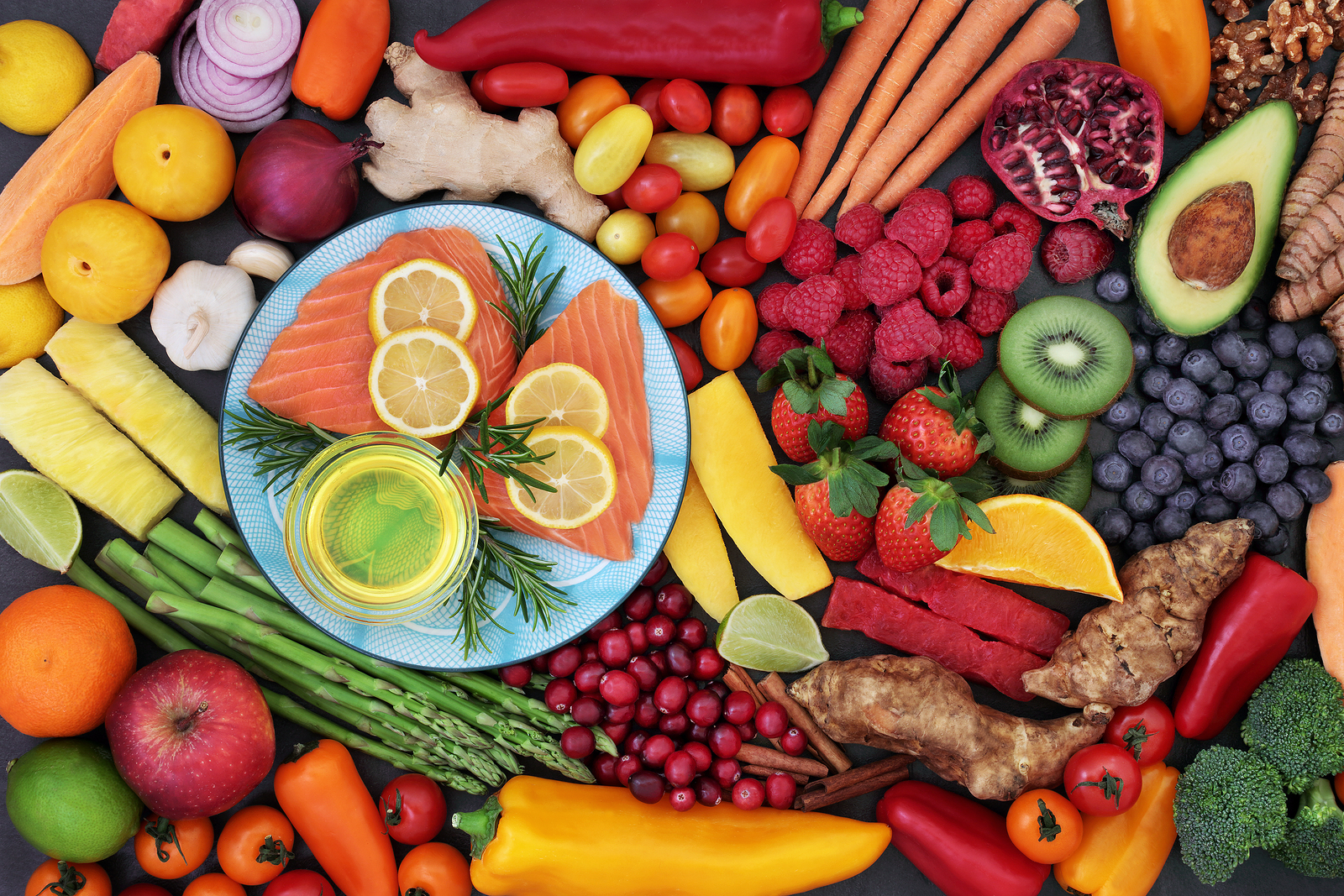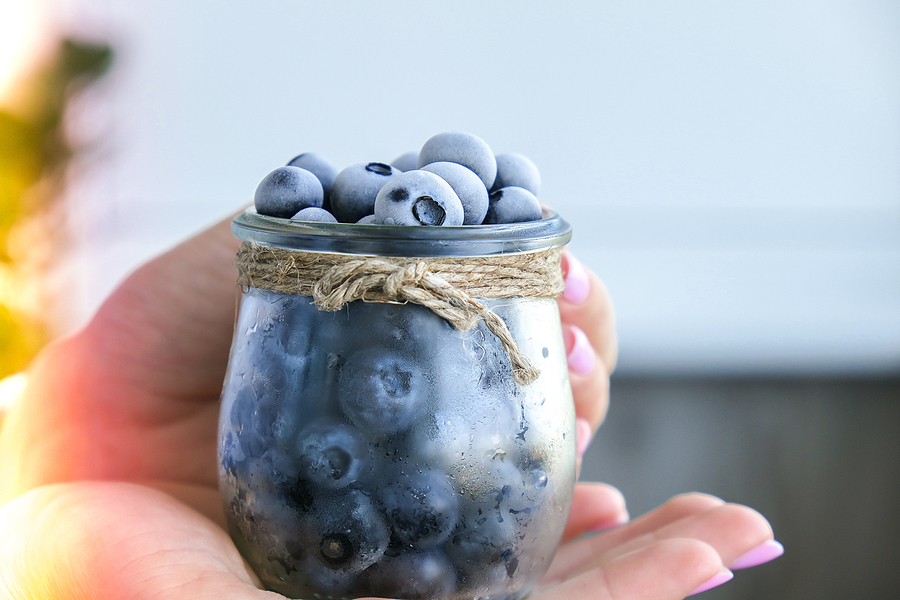It’s no secret that I am passionate about good nutrition. I have promoted food as one of the best medicines we have for years. This idea used to be seen as quite radical among conventional health care practitioners, but I’m happy to say that it’s starting to become more widely acknowledged and accepted.
Just last year, NPR ran a story on how some physicians and medical practices are finding unique ways to teach their patients the benefits of healthy eating. This is good news for those of us in the functional medicine world, who have been using this approach for decades. For far too long, conventional medicine has focused on treating disease with pharmaceutical solutions. Finally, they seem to be warming to the idea of preventive medicine – in the form of healthy food – and treating disease in more natural ways.
The traditional American diet is high in sugar, fats, salt and processed foods – none of which have a positive impact on health! In fact, this eating pattern has been shown to have a clear connection to the high rates of obesity, diabetes and heart disease in this country. The main causal factors in 80 percent of deaths from heart disease and stroke are caused by high blood pressure, high cholesterol levels, tobacco use, and low consumption of fruits and vegetables, according to the World Health Organization. And one of the best interventions, they say, is widespread education on healthy diet, along with initiatives that help shift cultural norms.
The time for change is upon us, and it is my great pleasure to share what I’ve learned about healthy food choices and the difference they can make in your life. I want to share a story from my own life with you, then we’ll talk about research that demonstrates the benefits of a healthy diet. Finally, I’ll give you some tips on how to incorporate healthy eating into your own life with ease.
A Personal Story – The Power of Food
For many years I’ve been very careful about what I eat. I had genetic profile testing done to be sure that I understood the biological factors that could impact my weight, and my health, in connection with the foods I was eating.
I’ve used all of the information I gathered to guide me in my eating habits, and for the most part I avoid gluten, dairy, sugar, and processed foods. I eat a lot of whole grains, organic fruits and vegetables, fish, and lean meat. I eat mindfully, and at specific times of day. I don’t snack much, and I drink mainly filtered water, seltzer and tea.
Thanks to these healthy habits, I rarely get sick. But one morning, when I was at the gym, I suddenly felt weak and dizzy; I thought I might actually pass out! Thankfully, I didn’t, but the rest of that day was no better – I simply felt horrible. Because it’s so unusual for me to feel this way, I had blood drawn. The first test showed my albumin level was elevated, prompting me to dig a little deeper. I had a complete metabolic profile (CMP), which includes testing lipase and amylase, pancreatic enzymes that help break down food.
Now this story could have ended there, and I may not have gained the insight I have now, if all had gone as planned. But due to unusual circumstances the blood I’d had drawn wasn’t able to be used, so the following Monday I had to have blood re-drawn to complete the tests.
Here’s where things get interesting. My birthday had fallen on that weekend, and as careful as I am with food, I’m not immune to the culture I live in. Food is everywhere, and special occasions are consistently seen as a time to indulge. So I did. But instead of the careful moderation I typically stick to – a little chocolate or a glass of wine, I went all out. I paid absolutely no attention to what I was eating that weekend. I had a couple of drinks, I ate dessert, I even ate french fries (which I only do once a year). Because this kind of overindulgence is so rare for me, I didn’t give a thought to the impact it was having on my body.
And then I had those blood tests on Monday morning. I was shocked at the results! My lipase levels were five times the normal level, and my amylase was four times the normal level. I was quite surprised – especially since I know that a diagnosis of pancreatitis or pancreatic cancer often comes with lipase levels that are five times the normal level.
I was wondering if something big was going on in my body. Being in healthcare I have learned to take these things seriously. I had an abdominal ultrasound and was glad to see that everything – my gallbladder, liver, and pancreas, came back looking normal.
So what was going on? After blood tests a week later came back with completely normal lipase and amylase levels, I realized just what had happened. My one weekend of indulgence had disrupted my gallbladder and pancreas so much that they reacted by producing sky high levels of those enzymes.
My story has a happy ending, and I found myself grateful that I only indulge like that once a year (and I’m certainly rethinking that now!). But what about women who have no idea that food can have such an immediate impact on their health?
That’s why I wanted to share this story, and let you know just how important our food choices are.
Scientific Evidence Supports What You Eat Can Effect Your Health
I have gathered plenty of anecdotal evidence through my practice about how what you eat can both prevent and treat serious health conditions and chronic illnesses. I’ve seen so many women come to my office frustrated and confused because they couldn’t get answers, change their diets dramatically, and end up feeling better than ever – without prescriptions. And I’ve experienced the power of healthy eating personally. I have been confident in my beliefs about food for decades, and more scientific evidence is becoming available that backs me up. Finally!
A 2010 review of studies provided an overview of the cellular damage oxidative stress can cause, and the role of dietary antioxidants in managing disease. This review found that in addition to internal antioxidant systems in the body, dietary and plant-derived antioxidants are a suitable alternative to synthetic antioxidants.
Studies have also shown the impact that diet can have on decreasing inflammation, which is at the root of so many chronic health conditions, including cardiovascular disease, Alzheimer’s disease, type 2 diabetes, and some types of cancer. One 2010 review published in Nutrition in Clinical Practice concluded that dietary patterns have a moderate influence on chronic, low-grade, systemic inflammation. An anti-inflammatory diet, then, could have significant positive impact on reducing inflammation and boosting health. And another study found that an anti-inflammatory diet could also be an effective treatment for obesity and health issues associated with obesity.
There are so many more studies on the positive impact of good nutrition on health. I certainly can’t detail them all here, but I think it’s safe to conclude that healthy foods are healing foods.
Practicing Healthy Eating: What is the Best Diet for Good Health
We are all unique individuals, with unique genetic profiles and biochemistry. That means there is no one diet that will work for everyone; you have to know your own body, sensitivities, and reactions to different types of food in order to best determine the ideal diet for you. That said, there are plenty of guidelines that just make good sense for everyone. Let’s take a look at a few now:
Eat Organic Whenever Possible
Food production has changed drastically, and industrial practices mean that much of the food you can buy is loaded with chemicals that can disrupt your health. If availability or cost of organic food is a problem for you, at the very least I recommend knowing the Environmental Working Group’s Dirty Dozen. This list will help you know which foods are really important to buy organic.
Reduce or Eliminate Added Sugar Consumption
Sugars are added for taste, not nutrition. And the havoc they can wreak on your body is startling. Try to find naturally sweet fruits and vegetables to satisfy those cravings
Make Sure You Are Eating Enough Healthy Fats
The popular belief that all fats are bad is a myth – and a dangerous one at that! Your body needs plenty of Omega-3 fats, natural anti-inflammatory foods that balance out Omega-6 fats (which can cause inflammation in high doses). That’s why foods like wild-caught salmon, walnuts, flaxseeds and chia seeds are a great addition to any diet. Other healthy fats include avocado, coconut oil, extra virgin olive oil, and grass-fed butter. Just remember that fats are calorie dense, and you don’t need a lot to reap the benefits – a little goes a long way!
Make Sure You’re Eating Enough Fiber
Fiber has benefits far beyond keeping your bowel movements regular (though that is quite important to good digestive health). Fiber is also essential to keeping your gut healthy, boosting your immune system, and even cardiovascular health.
Eat the Rainbow
Eating a wide variety of brightly colored vegetables and fruit means you’ll be packing in the antioxidants and essential nutrients your body needs to thrive. The added bonus is that with such variety, you won’t get bored with your food choices — the possibilities are endless!
Don’t Forget the Importance of Hydration!
When you get enough fluids, your body is able to flush toxins and cleanse your system to keep it functioning well. Water is the best choice, as long as it is filtered to remove dangerous chemicals. If you need variety, try adding some berries, lemon, or cucumber slices for a bit of flavor. Flavored seltzer water and herbal teas are also good alternatives to water.
Food Matters More Than You Might Think
Remember my story of just one decadent weekend, and how seriously it disrupted some important enzymes in my body? It’s the perfect illustration of why it’s so important to pay attention to what you’re eating on a regular basis. When you disrupt normal, healthy eating patterns too much you can really send your body into a downward spiral.
Moderation is key! It’s okay to treat yourself once in a while,the 80/20 rule applies here, but don’t go crazy and let all of your healthy eating habits slide at once! And remember, eating healthy isn’t a temporary “diet” – it should be your norm! What you eat dictates how you feel, and well-balanced eating habits are a lifestyle choice that leave you feeling healthy and happy long-term. Isn’t that better than the temporary satisfaction of french fries and dessert? I certainly think so!
Resources:
https://draxe.com/food-is-medicine/
https://www.who.int/chp/chronic_disease_report/full_report.pdf
https://www.todaysdietitian.com/newarchives/td_020909p40.shtml







